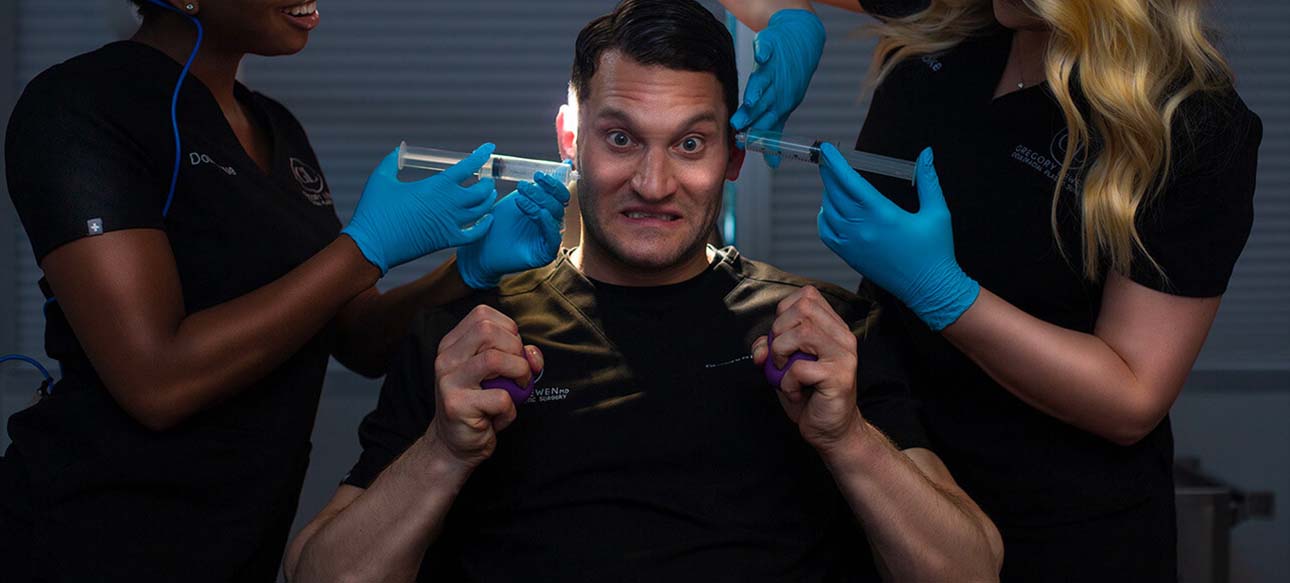Introduction to Brow Lift
At our boutique practice in Miami, brow lift is a very popular procedure. Double board-certified oculofacial plastic surgeon, Gregory D. Lewen, M.D., offers brow lift procedures for men and women in Miami, Aventura, and the surrounding areas of Florida. Dr. Lewen is one of the few plastic surgeons in the area who specializes in plastic surgery of the eyes.
Dr. Lewen strives to offer the best brow lift Miami patients can look forward to. He places patient safety as one of his number one priorities.
What is a Brow Lift?
The brow and forehead areas can commonly show some of the first signs of aging as a loss of volume tends to occur in this area somewhat earlier than in other areas of the face. A person’s actual age is not the only factor that contributes to some of the premature signs of aging in this part of the face. Sun damage and other environmental stresses, combined with the natural loss of collagen, elasticity, and overall volume in brow tissues over time, can lead to a loss of structure and fullness in the brows. As the brows start to show some signs of aging, gravity can also play a role in causing some of the skin in this area to sag. As the brows start to droop a little, this can sometimes be perceived as a feeling of heaviness in the upper eyelids. Others may not even consciously realize that their brows are starting to droop, but may learn to subconsciously raise their brows as a part of a normal expression, and in order to alleviate some of the feelings of heaviness. Frequently, this can result in exaggerated frown lines, wrinkles across the forehead, and/or increased heaviness of the eyebrows and upper eyelids. These changes can contribute to an appearance that may be interpreted by others as a tired, angry, or sad expression that may not accurately reflect the way you actually feel.

A youthful female brow is typically more arched and sits in a position at or slightly above the bony rim of the eye socket. A youthful male brow is typically flatter and positioned at the level of the bony rim of the eye socket. In both males and females, aging of the brow and forehead areas can cause the brows to sag, and in some cases, they can droop over onto the upper eyelids to create the feeling of additional heaviness in this area. It is important to understand that although drooping brows can contribute to heaviness in the upper eyelids, this is not the only cause.
If a patient has droopy brows and excess tissue in the upper eyelids causing the appearance of heaviness in this area, a brow lift is frequently performed at the same time as upper eyelid surgery. In some of these cases, if a brow lift procedure is not performed at the same time as upper blepharoplasty, the brow position may actually become lower after eyelid surgery as the brow can become tethered lower after the eyelid incision heals. For this reason, it is important to consider the possible need for a brow lift procedure at the time of your initial surgical consultation.
If expression lines or other signs of aging in the brow region bother you, a brow lift may be the solution.













